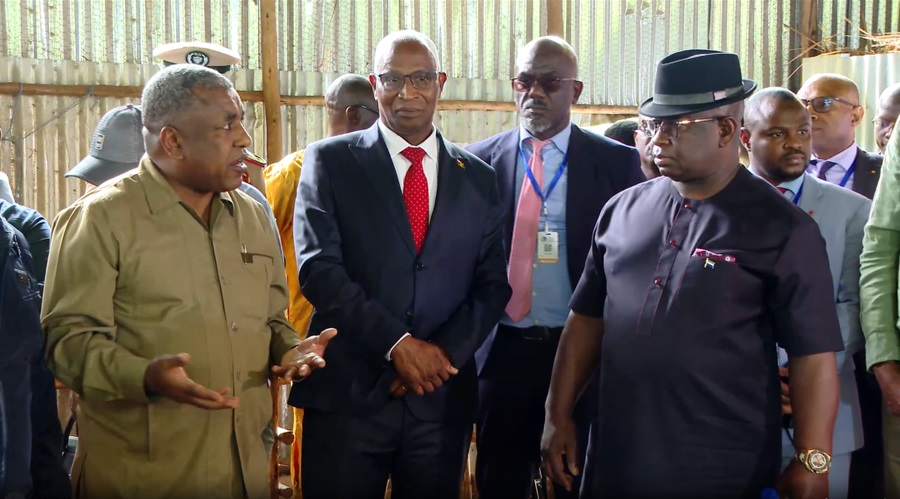African Leaders Vow to Replicate Ethiopia’s Agricultural Transformation in Ensuring Food Security - ENA English
African Leaders Vow to Replicate Ethiopia’s Agricultural Transformation in Ensuring Food Security

Addis Ababa November 8/2024 (ENA) Leaders of Sierra Leone and Guinea have vowed to replicate Ethiopia's success story of agricultural transformation in their endeavors to ensure food security.
Following the conclusion of a three-day World Without Hunger Conference, the leaders visited the successful achievements gained in household farms in the East Showa zone of Oromia region on Thursday.
Approached by the media Sierra Leone’s President Julius Maada Bio and Prime Minister Mamadou Oury Bah of the Republic of Guinea said that they have been desirous to emulate the achievements of Ethiopia, where it has tremendously embarked on activities of agricultural transformation.
Recall that Ethiopia has undertaken massive economic reform during the past six years, particularly, agricultural transformation is one of the nation’s major priorities.
Ethiopia is making a remarkable stride in utilizing its exponential natural resources, Republic of Guinea Prime Minister, Mamadou Oury Bah said.
“It’s been an immense pleasure to visit this experimental and actually now a reality of transformational agriculture. We see this as a major opportunity, because we have the land, we have the youth, we have the water resources. And all the natural resources required to mimic and replicate this type of result,” the Premier lauded.
The Prime Minister also stressed the need for industrializing agriculture as it is a major issue in recent times since African youth are undertaking illegal migration outside of the continent.
Thus, through this type of Ethiopia’s initiative, not only it helps in feeding our population, but also it is a great opportunity for job creation, Prime Minister Bah underlined.
“The initiative of his Excellency Prime Minister Abiy Ahmed for reforestation is a unique opportunity for us. As you may know we have the massive Fouta Djallon, which is a sub source of river and water for at least 15 other countries.
So all these reforestation initiatives are something that really hit home, because we also plan to plant millions of trees, and through this, not only we reestablish and perhaps have a positive impact on climate, but also then use it as a great opportunity for job creation, for retaining our youth in the country, for feeding our population, but also maintaining good health.”
The Premier further pledged to replicate Ethiopia’s successful Green Legacy Initiative that has been excluded since 2019.
East Africa, especially Ethiopia, by creating a center of gravitation, has really found the way in utilization of the soil, he stated, affirming that “we are committed to replicating this type of exercise and attain a similar result.”
Sierra Leone’s President Julius Maada Bio on his part said Africa has the potential to be fully self-sufficient and to even feed the world but agriculture of food production has not been taken very seriously.
The president revealed that Ethiopia under the leadership of the Prime Minister has done a good job in the agricultural sector specially, in wheat productivity.
“What Prime Minister Abiy has done, or what Ethiopia has done, is a very good example, worthy of emulation, and I've read about it. We've seen how, in a very short time, Ethiopia now exports wheat. Before then that was not the case. So that is a phenomenal job that has been done, not only by the government, the Prime Minister has provided the leadership, but the people also have bought into that particular direction,” he explained.
According to him, it is not only the leader that has to do things but also the ordinary citizens have to buy into the dream or direction of the leader to really materialize it.
“So we are very proud of what Ethiopia is doing, and that is why I just did not want to read about it. I wanted to come and see it in the field, and that is why I am here,” he underscored.
Furthermore, President Bio emphasized the need to take lessons from Ethiopia’s bright and promising effort towards ascertaining food security.